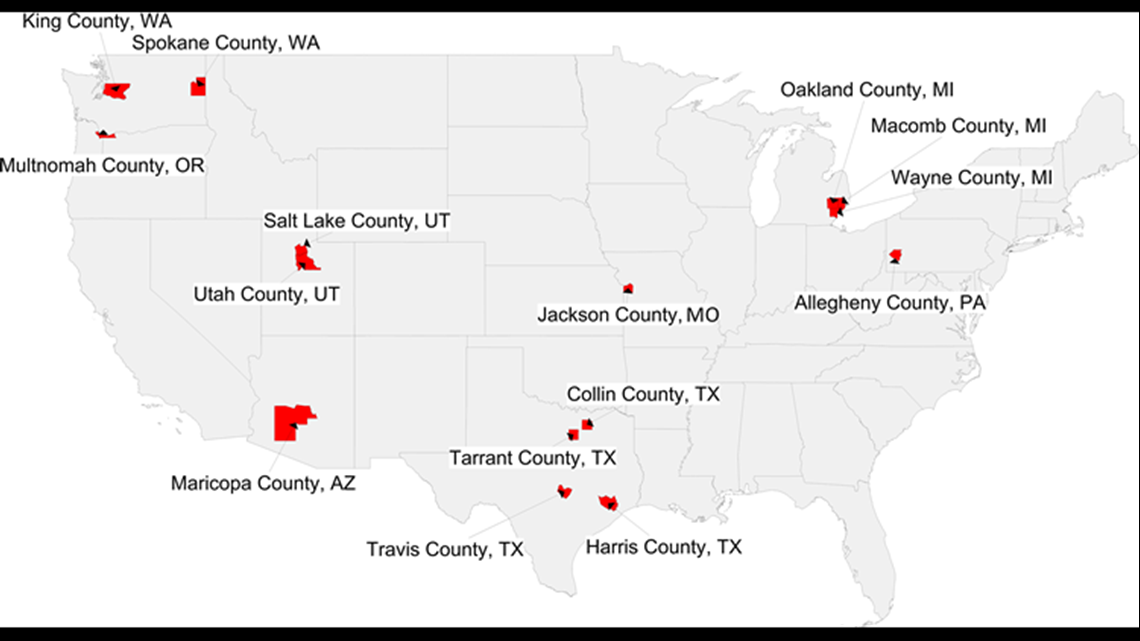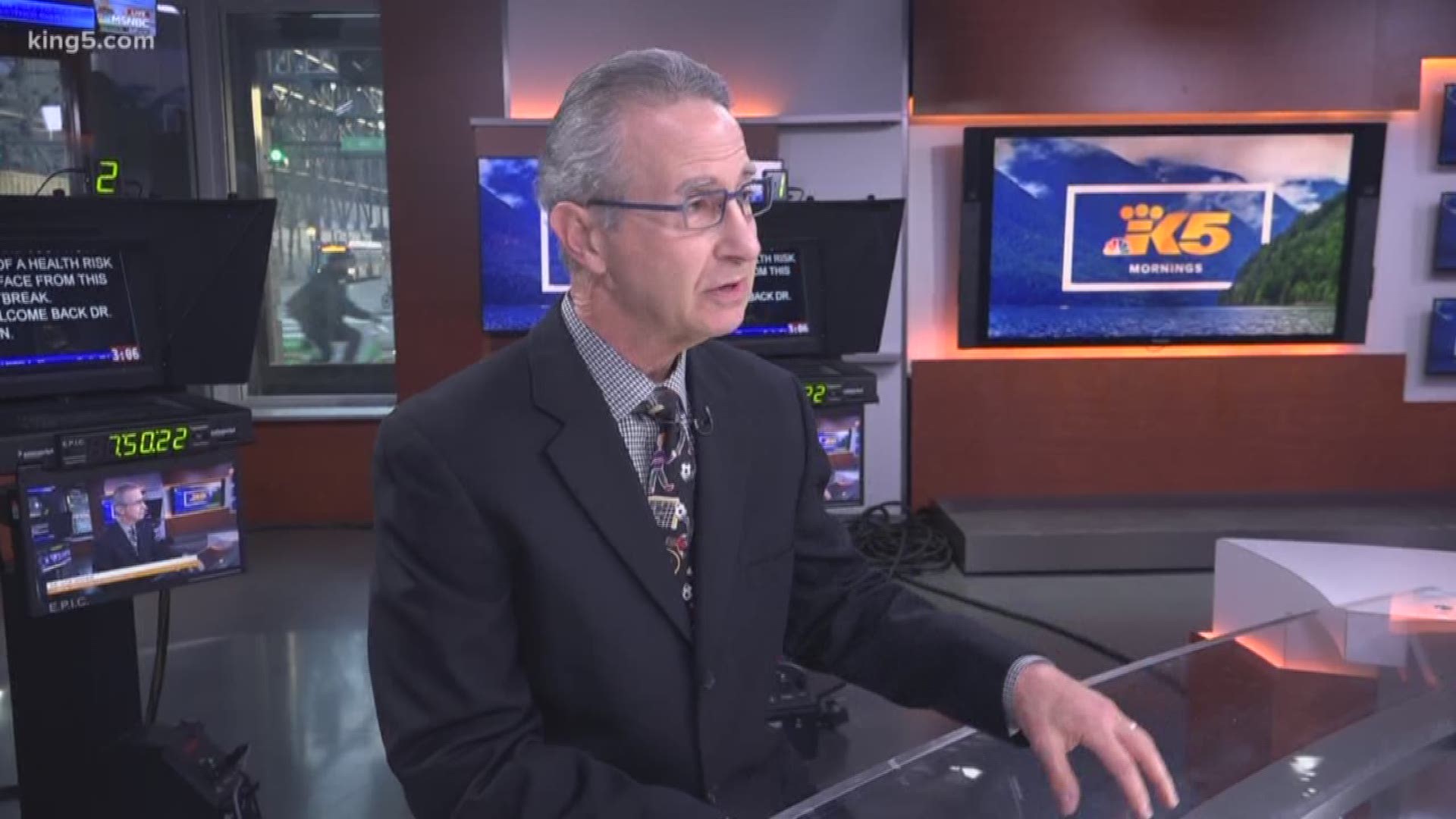Seattle is one of the so-called "hot spots" around the U.S. where there's a delay or refusal to vaccinate, according to the Public Library of Science (PLOS), a medicine publisher and advocacy organization.
The PLOS is a medicine publisher and advocacy organization. Its examination of so-called "hotspots" breaks down data by counties, including King County and Spokane County.
Here's a look at the report by counties:


Spokane and Portland, Oregon, also made the list of “anti-vaccine hotspots." Other cities listed include Salt Lake City, Utah; Provo, Utah; Phoenix, Arizona; Troy, Michigan; Warren, Michigan; Detroit, Michigan; Kansas City, Missouri; and Fort Worth, Houston and Plano, Texas.
Currently, vaccinations are required for Washington school-aged children, but state law allows parents to excuse their kids from some or all vaccines for personal, religious-related or medical reasons.
Washington is one of 18 states that allows parents to refuse to vaccinate their children for reasons other than religious practice, according to a 50-state analysis of data tracked by the Immunization Action Coalition and the National Conference of State Legislatures. Non-medical exemptions have been granted to Washington residents since mandated immunizations began in the state in 1979.
Nearly five percent of Washington kindergarten students had exemptions in the 2017-2018 school year, according to a KING 5 analysis of Washington Department of Health data. Personal exemptions were the most common type.
Nearly 8 percent of the state's kindergarten students were labeled as out of compliance for not turning in paperwork to show proof of vaccinations or an exemption.
“Several US ‘hotspot’ metropolitan areas stand out for their very large numbers of nonmedical exemptions (NMEs),” the PLOS writes. “Additional smaller counties – especially in ID, WI, and UT – also stand out for their high exemption rates.”
The PLOS examined total numbers of kindergartners with NMEs per county to identify areas with large numbers of “potentially vulnerable pediatric populations.” These totals were also provided by state health departments.
“The high numbers of NMEs in these densely populated urban centers suggest that outbreaks of vaccine-preventable diseases could either originate from or spread rapidly throughout these populations of unimmunized, unprotected children,” the PLOS writes.
According to the PLOS, the number of “philosophical-belief” NMEs has risen since 2009 in 12 of the 18 states that allow the policy, including Idaho and Oregon.
The state of Washington had a 90.5 percent measles, mumps and rubella (MMR) vaccination rate from 2016-2017, according to the PLOS. Nonmedical exemptions for that time frame sat at 4 percent. These numbers are out of 87,142 children enrolled in kindergarten.
The PLOS also analyzed the relationship between NME rates and vaccine coverage and found an inverse relationship between NME rate and MMR vaccine coverage in kindergartners. This indicates that states with higher overall NME rates have lower MMR vaccine coverage, according to the PLOS.

